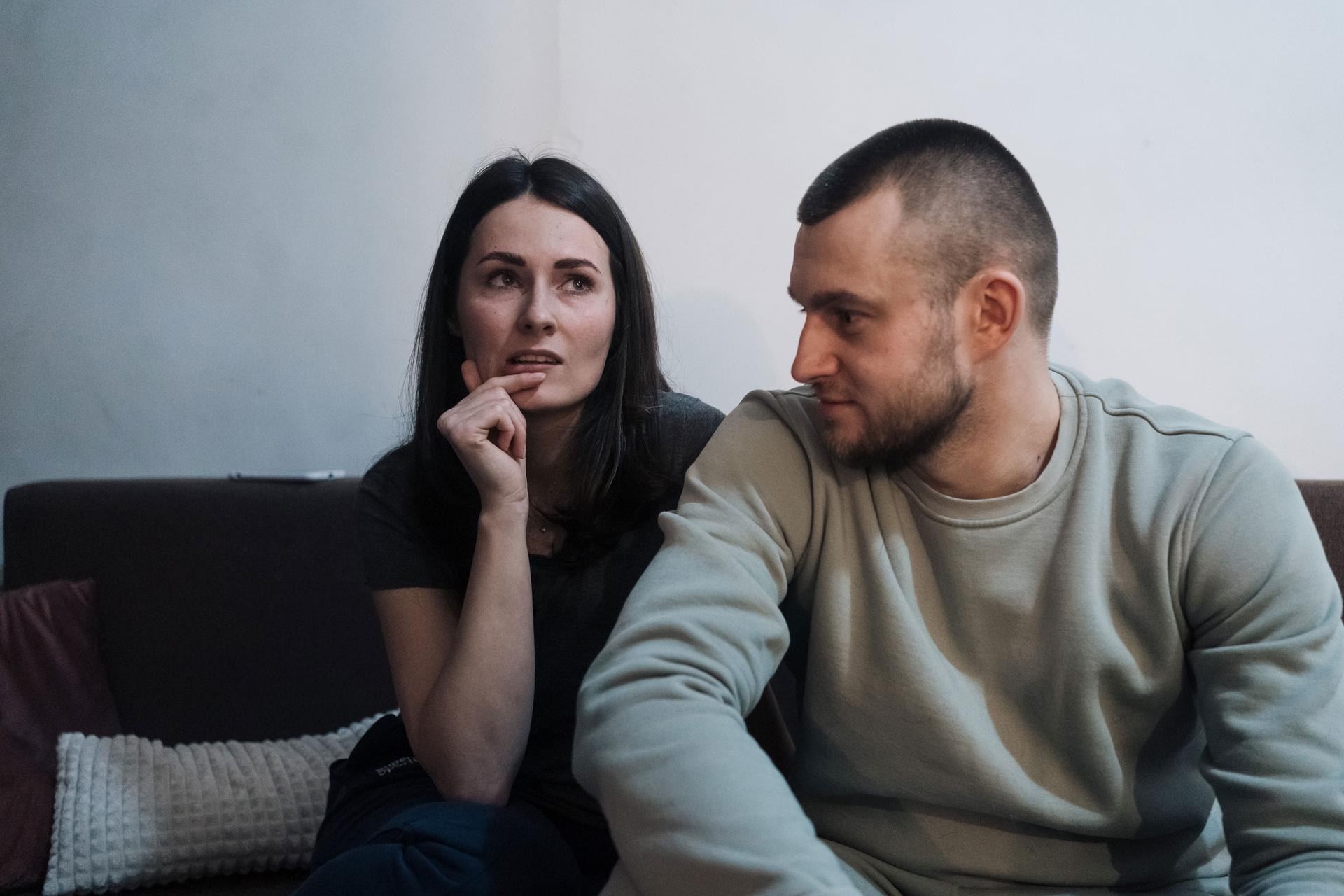‘We have to keep on living’: The search for love in wartime Ukraine
Ukrainians Alina Berezova and Stanislav Linevych were dating for just six weeks when they decided to move in together.
Linevych, 31, who works for a humanitarian organization in Kyiv, said he joined Tinder as an act of defiance against the Russians. Berezova, 25, who works in IT, said Linevych’s chubby beagle mix Archie drew her to his profile.
“We need to continue to live, we need to love,” Linevych said, “because only good things can defeat that darkness.”
More than a year since Russia launched a full-scale invasion in Ukraine, millions of people are continuing to live their lives — including the search for love — even as power outages, missile strikes and curfews complicate daily life.
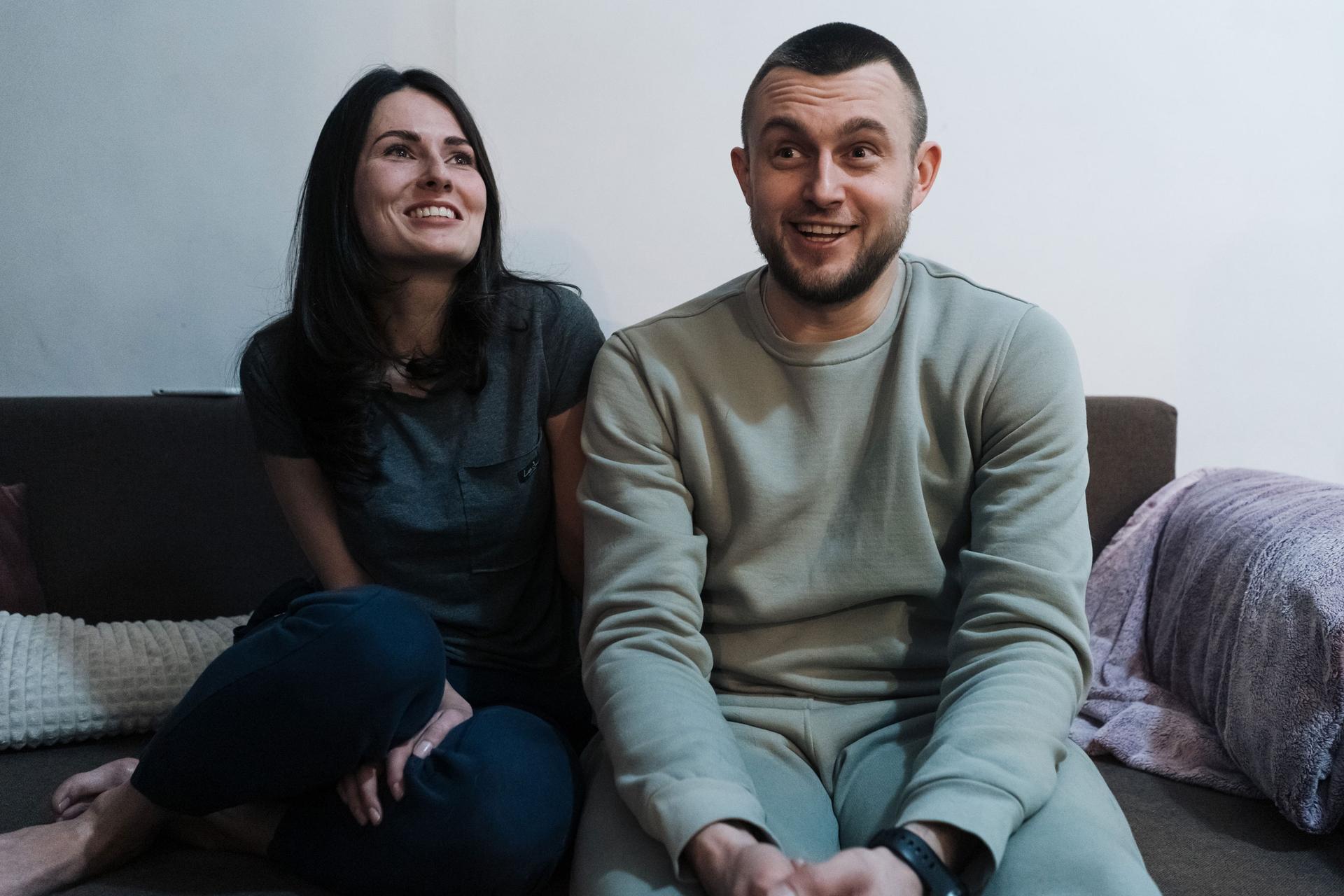
For many couples, the war has accelerated relationships, Kyiv psychologist Tetiana Lovchynska said.
“People are very social creatures,” she said. “And during war, we lose previous connections and previous lifestyles, and we need to rebuild.”
Lovchynska has seen hundreds of individuals and couples in therapy over the last year and has noticed a trend of moving in together and reaching other relationship milestones more quickly.
“People understand that we don’t have tomorrow,” she said. “We have now.”
On their first date, the couple lost track of time and had to race home to meet the 11 p.m. curfew. Six weeks into their relationship, Kyiv and its infrastructure was being targeted by Russian missiles and power cuts were frequent.
“I didn’t have water in my flat, didn’t have light. And it was scary for me,” Berezova said, sitting next to Linevych on the couch in their apartment in a Kyiv suburb.
“I was alone. And when I was with Stanislav, it was more comfortable and more calm for me.”
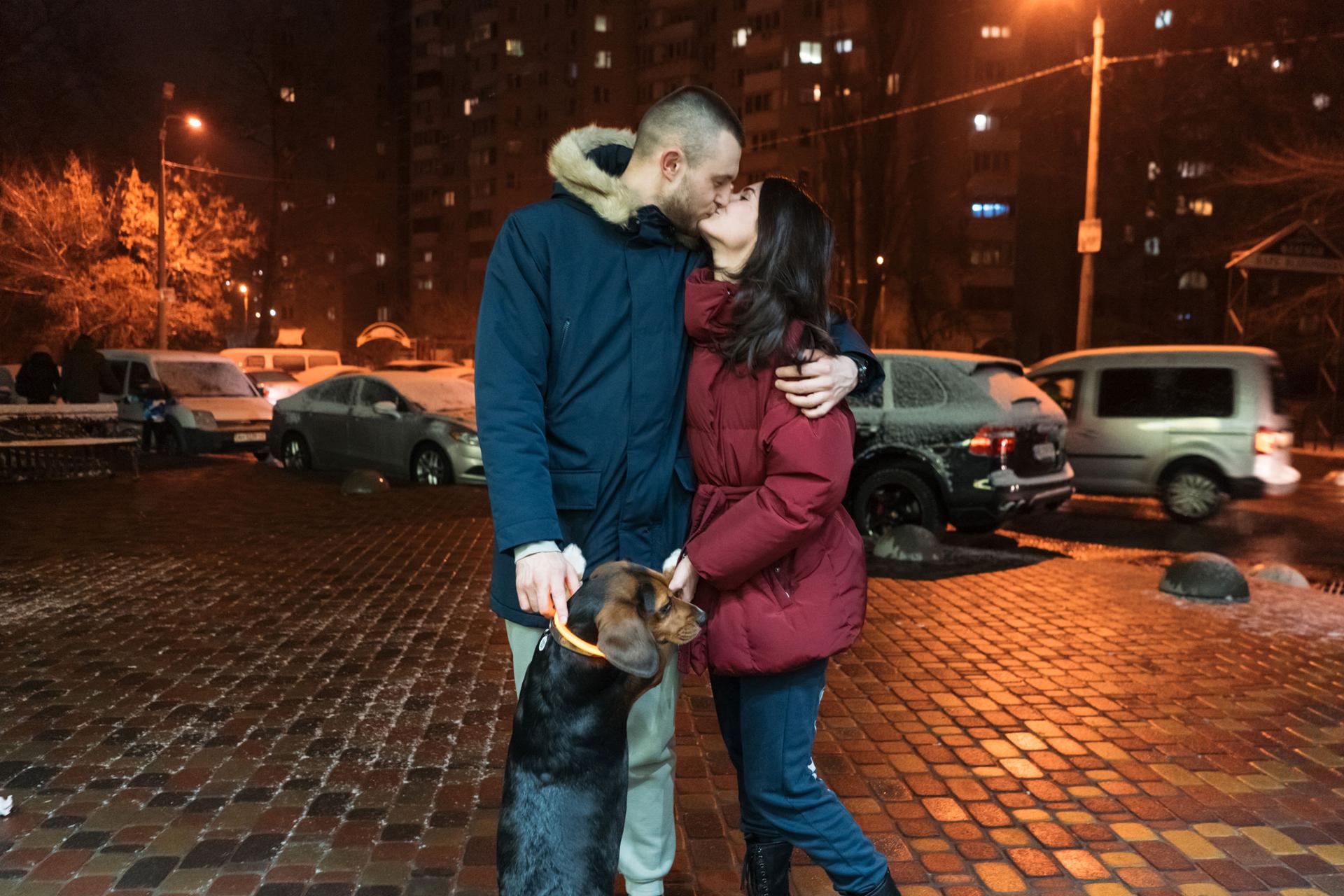
The couple teased each other as they recounted the story of their relationship.
“Alina told me that she feels safer when we’re together,” Linevych said. “And for me, it was very important to support her, and to be near her in stressful moments.”
Lovchynska has found that the stress of war is a litmus test for relationships.
“Some couples, they are getting even stronger,” she said, as they look past their problems and see just how important their relationship is in a time of conflict.
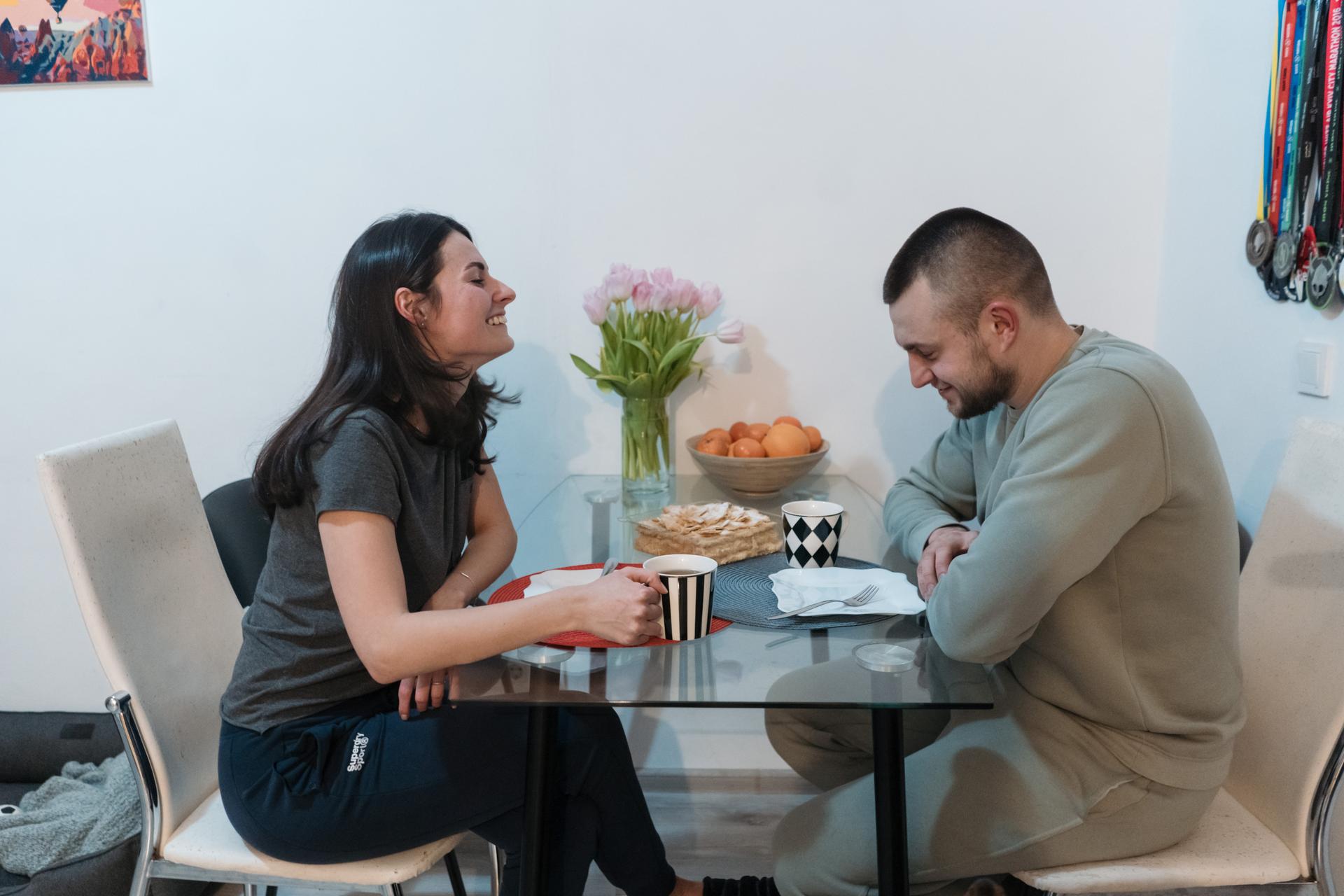
For others, the stress of war exacerbates existing divisions.
“All these things that were deeply inside, they come to the surface,” she said.
Lovchynska said the number of weddings went up 20% in Ukraine last year, but the number of divorces increased, too. A primary stressor is distance. Millions of Ukrainians left the country at the beginning of the Russian invasion, mostly women and children leaving husbands and fathers behind.
“Married couples, families, they are separated,” she said. “And this distance plays a huge role.”
Add the trauma and stress of living through war or displacement, and some couples don’t have the emotional energy to tend to their relationships, Lovchynska said.
Yevheh Martynenko, a university student studying history in Kyiv, saw his relationship of two years end last spring, after his girlfriend moved away from Kyiv to be with family.
“This kind of distance, it was very bad for our relationship,” Martynenko said.
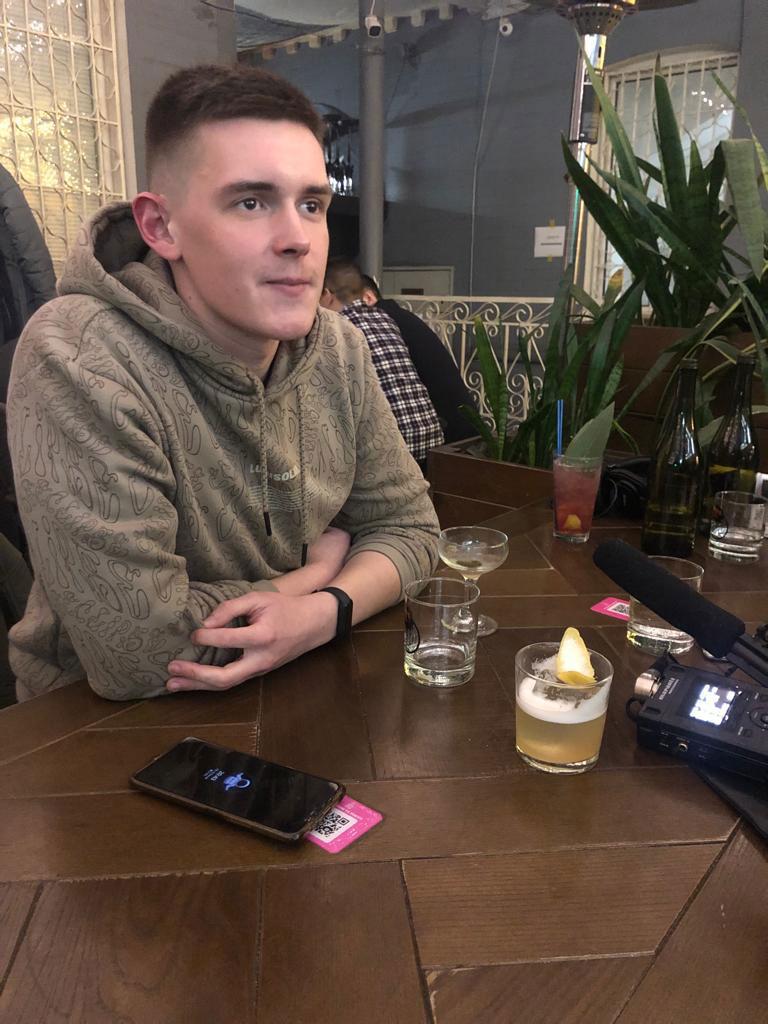
In normal times, Martynenko said that after the breakup he could have met people to date at work, school, or clubs.
But amid war, the restaurant where he worked closed, school went online for safety, and many clubs shut down because of the curfew.
“For me, it became more difficult to meet new people,” he said.
Last summer, he downloaded Tinder and another dating app called Badoo, but he said he hasn’t had much luck.
“It’s very difficult for me to build a new relationship when you meet a person online,” he said.
Still, wedding bells continue to ring out across the country.
Right now, marriage is limited to heterosexual couples in Ukraine, but the war has added urgency to a push for change. A petition for same-sex marriage to be legalized landed on President Volodymyr Zelenskiy’s desk this summer, and he proposed civil unions as an alternative.
Last week, a Ukrainian lawmaker submitted a draft law on the legalization of same-sex partnerships to the country’s parliament.
In Kyiv, an officiant at a municipal wedding chapel told The World that a growing number of brides and grooms come straight from the front lines, wearing their camouflage uniforms and combat boots as they exchange vows.
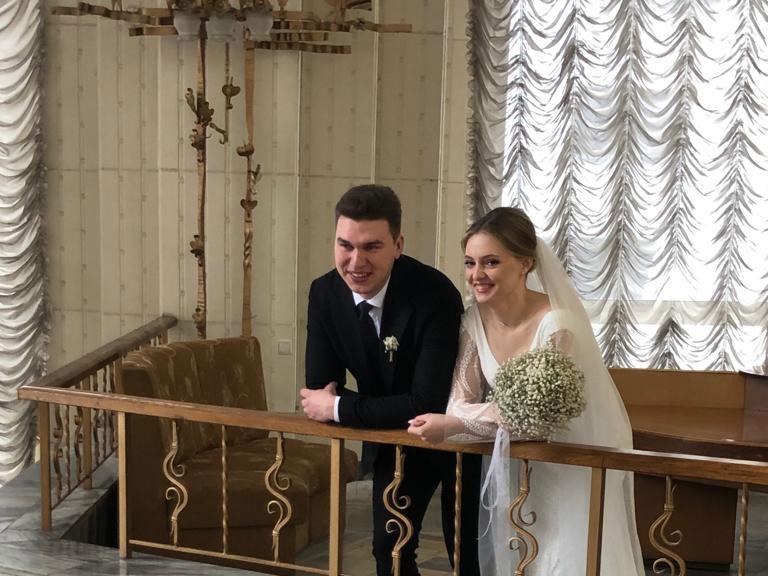
Anna Panasenko and Max Protsyk wore a more traditional gown and suit when they wed there in late February.
The couple, both in their 20s, met two years ago at a party held illegally during COVID-19 lockdowns and got engaged six months ago.
Speaking through an interpreter in the lobby of the Kyiv wedding chapel, they said at first they thought of postponing their wedding, hoping the war would end soon. But as it dragged on, they decided to go for it.
“Especially because the war is happening, we don’t want to postpone our life,” they said, finishing each other’s sentences as they waited their turn to walk down the aisle.
“We have to keep on living, and amongst all this evil that is happening, we want some good in our lives.”
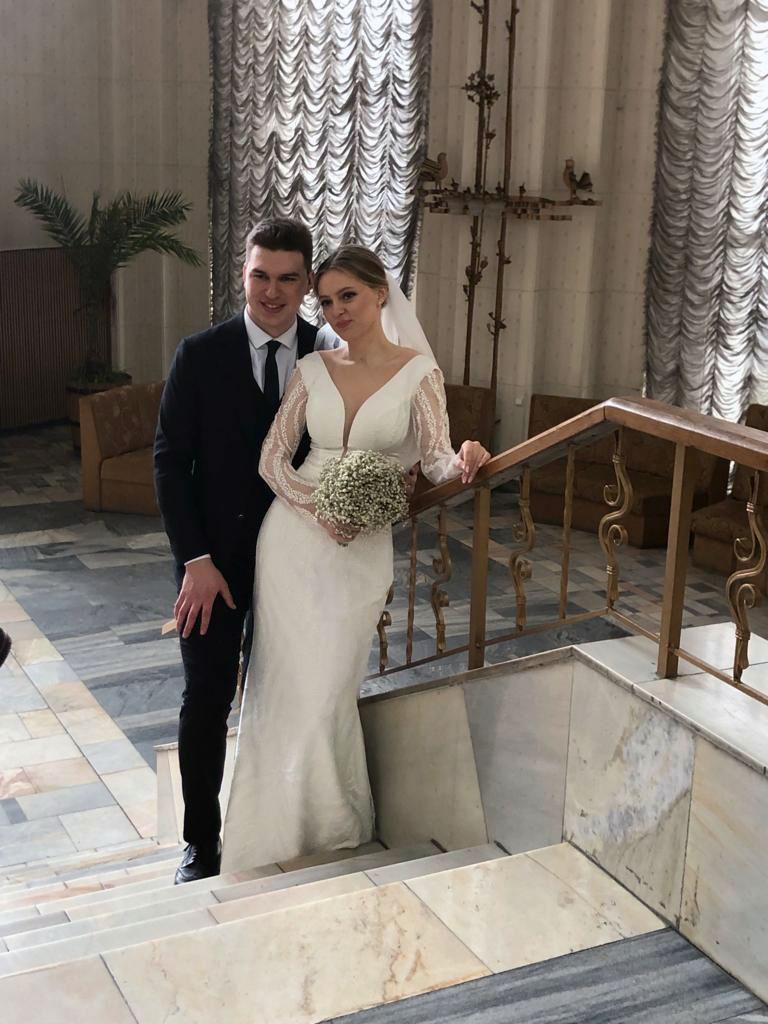
Friends at the ceremony said the couple supporting each other through the stress of war brought them closer together.
Panasenko works in a beauty salon, and Protsyk works in construction. He said he plans to help rebuild the country as they build a new life together.
When it was their turn to enter the chapel, the couple exchanged vows to applause and cheers from assembled friends and family, then raised their glasses in a celebratory toast.
Irina Protsyk, the groom’s mother, had come to the wedding from her home in a village outside of Zaporizhzhia, where the groom grew up. It’s now about 10 miles from the war’s front lines.
“It’s a big contrast,” she said. Soldiers are constantly passing through her village, helicopters flying overhead, and explosions sounding in the distance.
In Kyiv, the couple is all smiles, bubbling over like the champagne in their flutes. The war is on their minds, even on their wedding day, the groom said, but this moment is about celebrating a new beginning.
